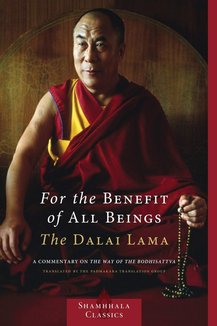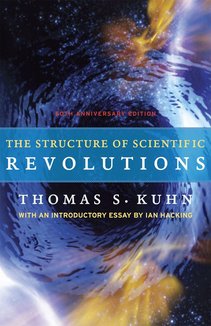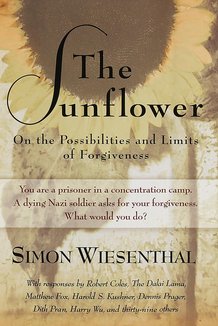Recommended Books

For the Benefit of All Beings: A Commentary on the Way of the Bodhisattva (Shambhala Classics)
Authors:
H.H. the Fourteenth Dalai Lama
,
James Gimian
,
Wulstan Fletcher
,
Padmakara Translation Group
ISBN 13:
978-1590306932
The Dalai Lama explains how to follow the spiritual path of the bodhisattva, offering his commentary on Shantideva's beloved Buddhist text The fourteenth Dalai Lama, a living embodiment of the bodhisattva ideal, presents here detailed practical guidance based on sections of The Way of the Bodhisattva by Shantideva, the best-known text of Mahayana Buddhism. The Dalai Lama explains this classic and beloved work, showing how anyone can develop a truly "good heart" and the aspiration for the enlightenment of all beings. In this book, the Dalai Lama's profound knowledge is evident—the result of extensive training. Here he shares his extraordinary insight into the human condition and what it means to be a responsible and caring person. This book was previously published under the title A Flash of Lightning in the Dark of Night .

The Structure of Scientific Revolutions: 50th Anniversary Edition
Authors:
Thomas S. Kuhn
,
Ian Hacking
ISBN 13:
978-0226458120
A good book may have the power to change the way we see the world, but a great book actually becomes part of our daily consciousness, pervading our thinking to the point that we take it for granted, and we forget how provocative and challenging its ideas once were—and still are. The Structure of Scientific Revolutions is that kind of book. When it was first published in 1962, it was a landmark event in the history and philosophy of science. Fifty years later, it still has many lessons to teach. With The Structure of Scientific Revolutions, Kuhn challenged long-standing linear notions of scientific progress, arguing that transformative ideas don’t arise from the day-to-day, gradual process of experimentation and data accumulation but that the revolutions in science, those breakthrough moments that disrupt accepted thinking and offer unanticipated ideas, occur outside of “normal science,” as he called it. Though Kuhn was writing when physics ruled the sciences, his ideas on how scientific revolutions bring order to the anomalies that amass over time in research experiments are still instructive in our biotech age. This new edition of Kuhn’s essential work in the history of science includes an insightful introduction by Ian Hacking, which clarifies terms popularized by Kuhn, including paradigm and incommensurability, and applies Kuhn’s ideas to the science of today. Usefully keyed to the separate sections of the book, Hacking’s introduction provides important background information as well as a contemporary context. Newly designed, with an expanded index, this edition will be eagerly welcomed by the next generation of readers seeking to understand the history of our perspectives on science.

The Sunflower: On the Possibilities and Limits of Forgiveness (Newly Expanded Paperback Edition)
Author:
Simon Wiesenthal
ISBN 13:
978-0805210606
A Holocaust survivor's surprising and thought-provoking study of forgiveness, justice, compassion, and human responsibility, featuring contributions from the Dalai Lama, Harry Wu, Cynthia Ozick, Primo Levi, and more. You are a prisoner in a concentration camp. A dying Nazi soldier asks for your forgiveness. What would you do? While imprisoned in a Nazi concentration camp, Simon Wiesenthal was taken one day from his work detail to the bedside of a dying member of the SS. Haunted by the crimes in which he had participated, the soldier wanted to confess to--and obtain absolution from--a Jew. Faced with the choice between compassion and justice, silence and truth, Wiesenthal said nothing. But even years after the way had ended, he wondered: Had he done the right thing? What would you have done in his place? In this important book, fifty-three distinguished men and women respond to Wiesenthal's questions. They are theologians, political leaders, writers, jurists, psychiatrists, human rights activists, Holocaust survivors, and victims of attempted genocides in Bosnia, Cambodia, China and Tibet. Their responses, as varied as their experiences of the world, remind us that Wiesenthal's questions are not limited to events of the past.